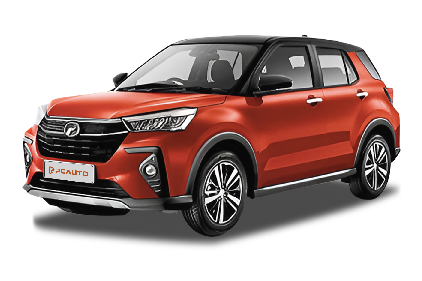Q
how to check car plate owner malaysia
In Malaysia, querying vehicle owner information based on license plates is considered a matter of personal privacy protection. The general public can't just access that info through open channels; one must go through the proper legal procedures with the Road Transport Department (JPJ). If you've got a valid reason, such as filing an accident claim or dealing with a legal dispute, you can head to a JPJ counter with supporting documents such as a police report or court papers to submit your application. Alternatively, you can use officially authorized platforms like MyEG to file a request online, but you'll need to pay an administration fee and clearly state the purpose of your inquiry. It's important to note that randomly checking someone else's vehicle details could land you in hot water under the Personal Data Protection Act (PDPA), so always proceed with caution. Meanwhile, vehicle owners can easily check their own vehicle info—things like road tax status and traffic summonses—through JPJ's MySikap system or mobile app. If you're looking to verify the legitimacy of a used car, ask the seller for the original vehicle registration card (Geran) and cross - check it with the records at JPJ. For special or vanity license plates, JPJ's eBid system lets you look up auction records (this only applies to special license plates). As for regular plates, sticking with reputable used car platforms or dealerships for the transfer process is your best bet to stay safe.
Special Disclaimer: This content is published by users and does not represent the views or position of PCauto.
Popular Models
Popular Cars
Model Year
Car Compare
Car Photo
Latest Q&A
Q
Do I need an alignment after rotation?
Whether a four-wheel alignment is needed after tire replacement depends on the actual condition of the vehicle. If only the tires are replaced and the vehicle has been driving normally without deviation, steering wheel vibration, or uneven tire wear, a four-wheel alignment is usually not required immediately, but wheel balancing must be performed to ensure stability when the wheels rotate at high speeds. However, if problems such as directional deviation, reduced steering precision, misaligned steering wheel, or abnormal tire wear (e.g., one-sided wear) occur after tire replacement, four-wheel alignment is necessary to adjust the geometric parameters of the suspension system (including caster angle, front wheel camber, etc.), thereby restoring the vehicle's straight-line driving stability and uniform tire contact with the road. Moreover, if chassis component repairs (such as suspension or steering system) are involved during tire replacement or the vehicle has been in a collision, four-wheel alignment becomes an essential step, as it can effectively reduce abnormal tire wear, improve handling safety, and lower fuel consumption. It is recommended to check the alignment parameters regularly every 20,000 kilometers or once a year. If you frequently encounter rough road conditions (such as curbs or speed bumps) during daily driving, the inspection interval should be shortened accordingly. Professional technicians can measure the data using specialized equipment and compare it with the manufacturer's specifications to determine whether adjustments are needed.
Q
Is it okay to rotate tires every 10,000 km?
Rotating tires every 10,000 kilometers is a reasonable and necessary maintenance measure, especially for fuel vehicles, as this frequency can effectively balance the wear difference between front and rear tires. Tire rotation involves regularly adjusting the installation positions of tires (e.g., moving front tires to the rear), which ensures more uniform wear across all tires, thereby extending the overall service life by approximately 20%-30%. For fuel vehicles, it is recommended to rotate tires every 10,000 kilometers, while for new energy vehicles, due to their greater weight and stronger torque output, the interval should be reduced to 8,000 kilometers. During rotation, the cross-rotation method should be employed (i.e., moving front tires to the opposite rear positions), and tire pressure should be checked simultaneously to ensure it meets the specified standards (2.3-2.5 bar for fuel vehicles, with an additional 0.2 bar for new energy vehicles). It is important to note that if a tire exhibits abnormal unilateral wear, bulges, or tread depth below 1.6 millimeters, simple rotation is not recommended and the tire should be replaced immediately. Regular monthly tire pressure checks and removal of debris from treads can further enhance tire performance and safety.
Q
What happens if you don't rotate tires?
If tire rotation is not performed regularly, it will lead to uneven tire wear, which in turn causes multiple problems. For front-wheel-drive vehicles, the front tires bear both driving and steering functions, so their wear rate is significantly faster than that of the rear tires; for rear-wheel-drive vehicles, since power is concentrated on the rear tires, the rear tires wear more noticeably. Long-term failure to rotate tires will shorten the overall tire life by 20%-40%—the front tires may be scrapped prematurely while the rear tires remain relatively new, resulting in resource waste. In addition, uneven wear reduces traction, particularly on wet surfaces, which can easily lead to skidding or a 10%-15% increase in braking distance, thereby elevating driving risks. Irregular wear also exacerbates tire noise and increases fuel consumption by 0.3-0.8 liters per 100 kilometers due to uneven rolling resistance. It is recommended to rotate tires every 10,000 to 15,000 kilometers. For front-wheel-drive vehicles, the cross-rotation method should be employed (left front to right rear, right front to left rear), while for rear-wheel-drive vehicles, the rear tires need to be crossed to the front. After rotation, tire pressure (the standard value typically ranges from 2.3 to 2.6 bar) should be verified and wheel balancing performed to prevent high-speed vibrations. If the tires exhibit irregular wear patterns or the tread depth falls below 1.6 mm, they should be replaced immediately. Regular tire rotation not only prolongs tire lifespan but also enhances fuel efficiency and driving safety. The cost of a single rotation is approximately 50 to 100 ringgit, substantially lower than the expense of premature tire replacement.
Q
Is it good to rotate car tires?
Tire rotation is an important maintenance measure to ensure even tire wear and extend service life. It is recommended to perform it every 5,000 to 10,000 kilometers or when uneven wear is detected. For front-wheel drive vehicles, the front tires wear faster as they handle steering and braking tasks, so they need to be cross-rotated with the rear tires (left front to right rear, right front to left rear). For rear-wheel drive vehicles, the rear tires should be diagonally swapped with the front tires to balance the wear of the drive wheels. If the tires have a directional tread pattern or asymmetric design, the rotation direction must be maintained, and only front-to-rear swaps on the same side are allowed to avoid affecting handling on wet and slippery roads. After rotation, the tire pressure should be adjusted to the standard for the corresponding wheel position, and it is recommended to perform dynamic balancing and four-wheel alignment simultaneously to optimize driving stability. Note that snow tires or studded tires cannot be rotated, and tires with different front and rear sizes can only be swapped left and right. Regular rotation can reduce abnormal wear (such as uneven wear or wavy patterns), improve grip and driving quietness, reduce safety hazards caused by tire problems, and save replacement costs in the long run. The specific operation should be based on the vehicle manual. If there is a lack of guidance, the cross-rotation method for bias-ply tires or the same-side rotation method for radial tires can be prioritized.
Q
How often should car tyres be rotated?
The replacement cycle of car tires should be determined by comprehensively considering factors such as service life, mileage, driving habits, and environmental conditions. Generally, it is recommended to replace them every 3 to 5 years or after 60,000 to 80,000 kilometers of driving, whichever comes first. As rubber products, tires deteriorate over time. Even if the mileage threshold hasn't been reached, immediate replacement is necessary when sidewall cracks, bulges appear, or tread depth falls below 1.6 mm (verifiable with a coin test) to ensure safety. Due to their heavier weight and stronger torque output, new energy vehicles experience accelerated tire wear. It is advisable to shorten the inspection interval to every six months, with urban commuting replacement mileage typically ranging from 42,000 to 56,000 kilometers. Regular tire rotation helps distribute wear evenly. For front-wheel-drive vehicles, front-to-rear rotation every 8,000 to 10,000 kilometers is recommended, while for new energy vehicles with higher front axle loads, this interval can be reduced to 6,000 to 8,000 kilometers. Additionally, maintaining cold tire pressure at 2.3 to 2.5 bar (add 0.2 bar for new energy vehicles) and avoiding aggressive maneuvers like rapid acceleration and hard braking can extend tire lifespan by 15% to 20%. Tires exceeding 6 years from their production date (identifiable via the DOT code on the sidewall) should be replaced regardless of apparent condition.
View MoreLatest News

2026 Mazda 3 Liftback Latest Pricing: On-the-Road Cost, Monthly Instalments and 1.5L vs 2.0L Differences
AshleyFeb 27, 2026

Jaecoo J5 priced from RM110k – lower than earlier estimate, B-segment SUV with 147 PS and 540° camera
WilliamFeb 26, 2026

Jaecoo J7 2026: Full Specs, OTR Pricing, PHEV Details & Competitor Comparison
RobertFeb 26, 2026

Before buying the Chery Omoda 5, you must know some issues
Kevin WongFeb 23, 2026

Recon Crown Easy to Maintain? The Truth About the Most Worrying Part Supply and Repair
JamesFeb 23, 2026
View More




 Cars
Cars





